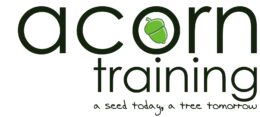
Effective Teacher Professional Development: 10 Must-Try Approaches
 Nov 14, 2023
Nov 14, 2023
Table of Contents
Introduction

Effective teacher professional development is crucial in the education sector as it significantly enhances teaching quality and student outcomes. These approaches will not only enhance teaching skills but also address critical aspects like student leadership development. Whether you’re an educator in Singapore or anywhere else in the world, this guide is for you.
The Importance of Effective Teacher Professional Development
Effective teacher professional development is a continuous journey aimed at improving teaching methods, classroom management, and fostering professional growth. In Singapore, the need for professional development for teachers is well-recognized, given the rapidly evolving educational landscape. It’s equally essential to focus on developing leadership skills in students, as this fosters a well-rounded educational experience.
Now, let’s delve into the 10 must-try approaches to effective teacher professional development:
Approach 1: Workshops and Seminars
For effective teacher professional development, educators have traditionally turned to workshops and seminars as reliable means for enhancing their skills. These events offer teachers chances for practical learning, fresh insights, and staying current with education trends. Experts from education lead these sessions, sharing useful strategies for teachers to use in their classrooms.
In Singapore, these workshops and seminars can focus on curriculum updates, teaching methodologies, classroom management, and student engagement techniques. Teachers can pick workshops that suit their needs and interests, making professional development flexible and tailored.
Approach 2: Online Courses and Webinars

Online courses and webinars have become widely sought-after for effective teacher professional development. Educators can enroll in courses that suit their schedules and engage in learning from the comfort of their homes or schools. These courses cover various subjects and help teachers earn certificates or even degrees.
Webinars are shorter, often one-time events that provide insights into specific topics. They are ideal for busy educators who want to keep up with the latest developments in education. Teachers can participate in live webinars or access recorded sessions, making it easy to fit professional development into their busy schedules.
Approach 3: Peer Coaching and Mentoring
Peer coaching and mentoring are powerful approaches to effective teacher professional development. They create a supportive environment where educators can collaborate, share experiences, and learn from one another. In peer coaching, teachers work together to set goals, observe each other’s classes, and provide constructive feedback. This promotes reflective teaching practices and helps educators refine their skills.
Mentoring programs pair experienced teachers with those new to the profession. The mentor offers guidance, advice, and a listening ear to the mentee. These relationships help teachers grow professionally as mentors offer valuable insights and support to their mentees in facing teaching challenges.
Approach 4: Action Research
Action research encourages teachers to identify specific challenges in their classrooms and develop strategies to address them. This approach involves a systematic process of observation, data collection, analysis, and implementation of changes based on the findings. Teachers become researchers in their own classrooms, constantly improving their teaching methods.
In Singapore, action research is particularly valuable for educators seeking to adapt their teaching to the diverse needs of their students. It empowers teachers to make data-driven decisions and tailor their instruction to meet the evolving demands of the education system.
Approach 5: In-Classroom Observation and Feedback
In-classroom observation and feedback provide teachers with an opportunity to receive constructive input on their teaching practices. Typically, this method involves coaches or experienced peers observing a teacher’s class and providing feedback on various aspects. These aspects include classroom management, teaching methods, and strategies to engage students.
Getting feedback from an observer is a useful learning experience. It helps teachers see their teaching from a new angle and make needed improvements. These observations can help teachers better understand effective pedagogy and enhance their ongoing professional development for effective teacher professional development.
Approach 6: Professional Learning Communities (PLCs)
PLCs are small groups of teachers who meet regularly to work together, share experiences, and discuss about teaching and student needs. PLCs offer a supportive environment for teachers to talk professionally, think about their teaching, and work together toward shared goals.
In Singapore, PLCs are instrumental in fostering a culture of collaborative learning and professional development. They can focus on various topics, from subject-specific pedagogy to school-wide initiatives. Within PLCs, teachers collectively share wisdom and experiences that help them improve their teaching and better meet their students’ diverse needs.
Approach 7: Curriculum Development and Redesign
Involvement in curriculum development lets teachers shape what and how they teach in their classrooms. This method helps teachers teach in a way that’s meaningful and relevant to students by following curriculum standards and educational goals.
In Singapore, as the educational landscape constantly evolves, educators receive encouragement to contribute to curriculum development. Their input can lead to the creation of engaging, culturally relevant, and effective instructional materials. This collaborative process enhances the quality of education and contributes to teachers’ professional growth.
Approach 8: Student Leadership Development Programs
Developing leadership skills in students is not just about their personal growth but also a crucial aspect of education. Introducing student leadership programs at your school can help teachers grow professionally while nurturing students’ leadership skills.
These programs usually include activities where students lead, make decisions, and contribute to the school community with the guidance of teachers. Teachers play a pivotal role in guiding and mentoring students in these endeavors. The experience gained from implementing such programs can enhance teachers’ abilities in student motivation, empowerment, and character development.
Approach 9: Educational Conferences
Educational conferences offer a wealth of knowledge and networking opportunities for teachers. Attending these events exposes educators to the latest trends, research, and innovations in education. It’s a chance to hear from experts in the field, participate in workshops, and connect with like-minded professionals.
In Singapore, numerous educational conferences cover a wide range of topics, from inclusive education to STEM teaching. These conferences can inspire teachers, provide fresh perspectives, and help them stay informed about best practices and emerging trends in education. The insights gained from conferences can directly impact teaching methods and strategies.
Approach 10: Teacher Book Clubs
Teacher book clubs are a more casual yet effective way for educators to engage in professional development. By selecting and reading books related to education, teaching methods, or pedagogical theories, teachers can gain new insights and perspectives.
The key to successful teacher book clubs is meaningful discussion and reflection on the content. Encourage participants to share their thoughts and experiences related to the book’s themes. This approach fosters a sense of community and collaborative learning among teachers.
Conclusion
In summary, these 10 approaches to effective teacher professional development provide various options for educators globally, including those in Singapore. These methods improve teaching skills and help students develop leadership skills, creating a well-rounded effort.
Remember, professional growth is ongoing. Teachers should explore different approaches to adapt to changes in education. By using these strategies, teachers can improve their teaching, stay current with education trends, and help their students learn better. Start your professional development journey today, and watch the transformation in your classroom and school community unfold.
